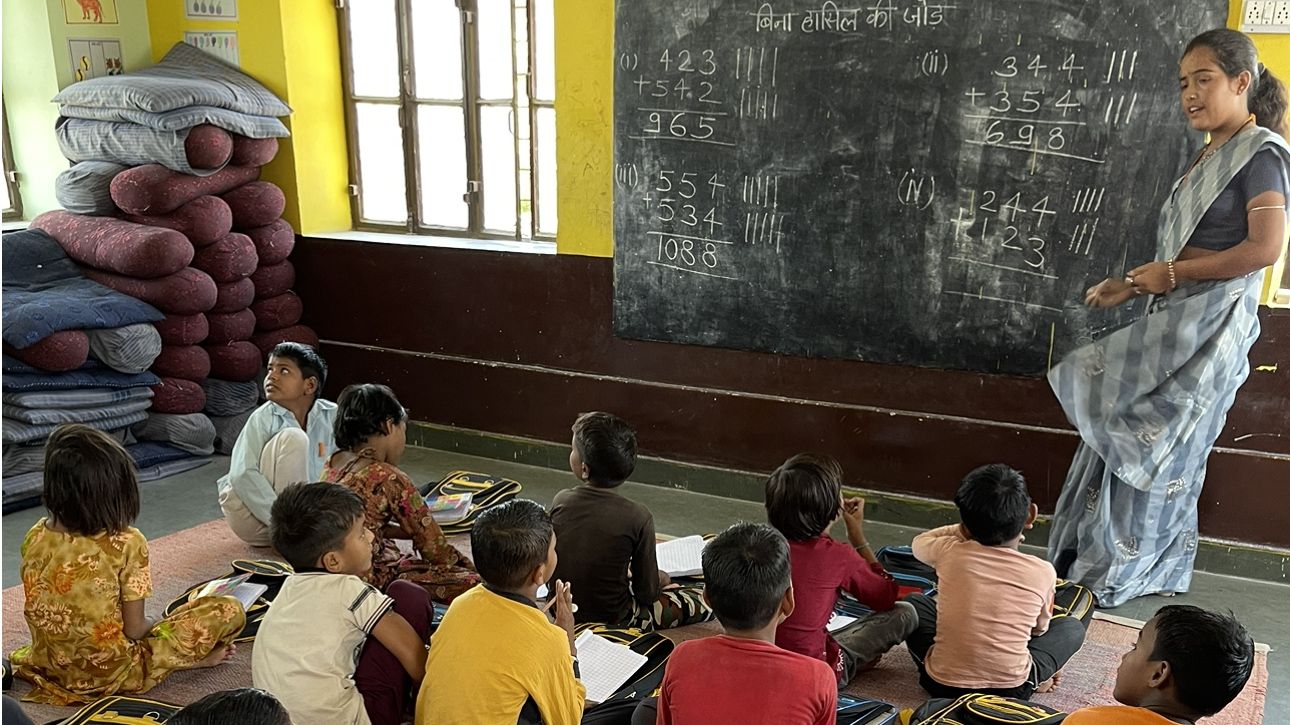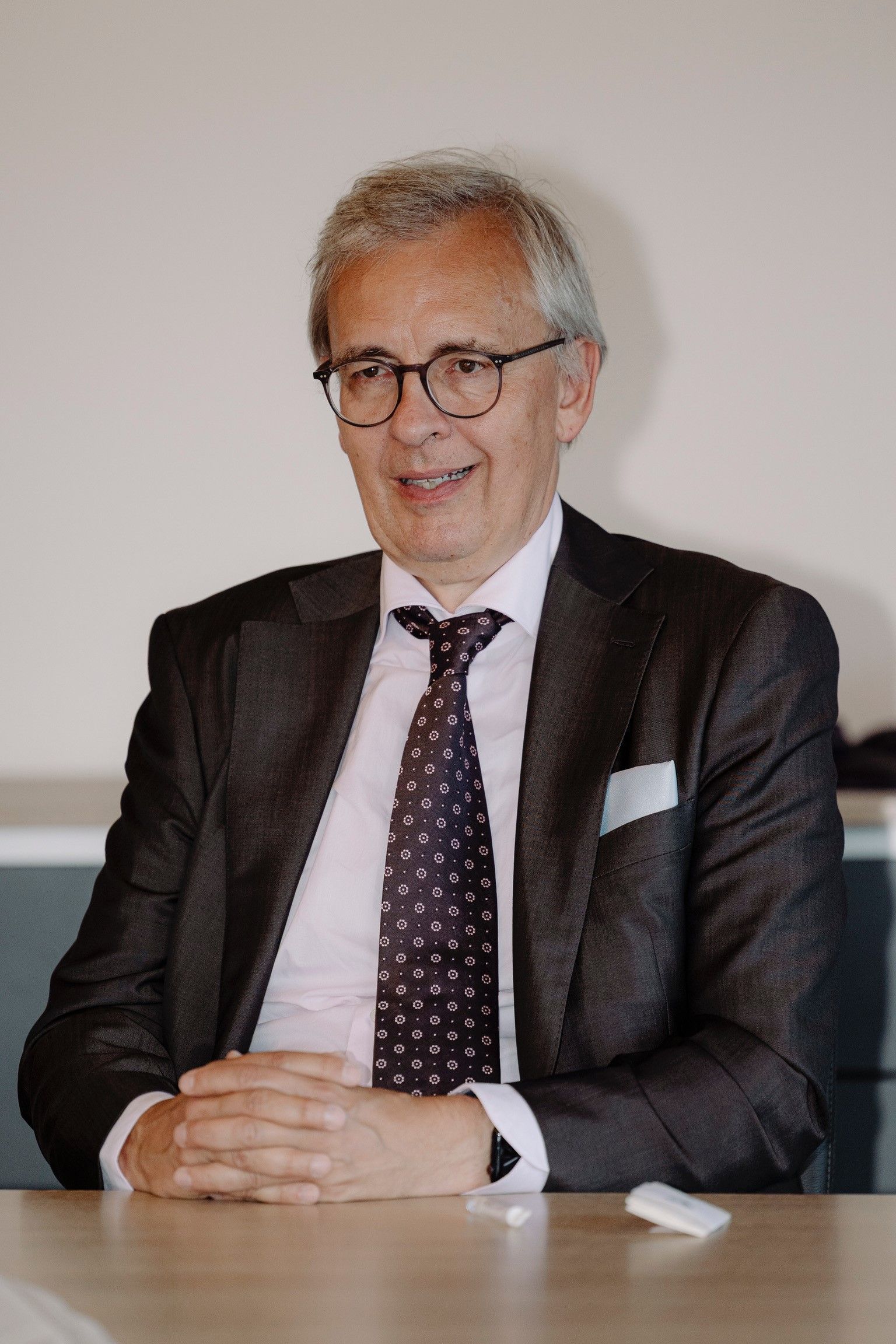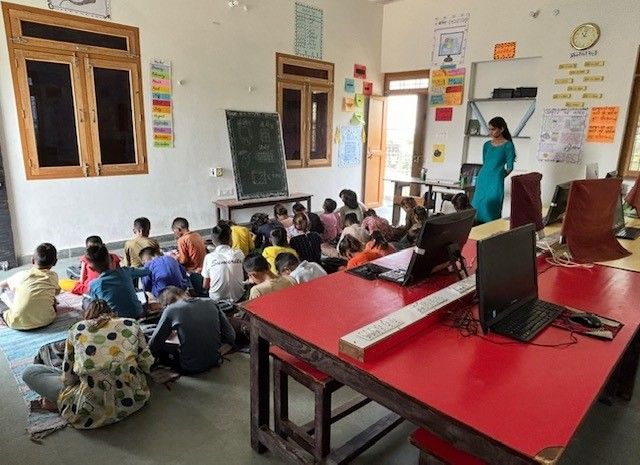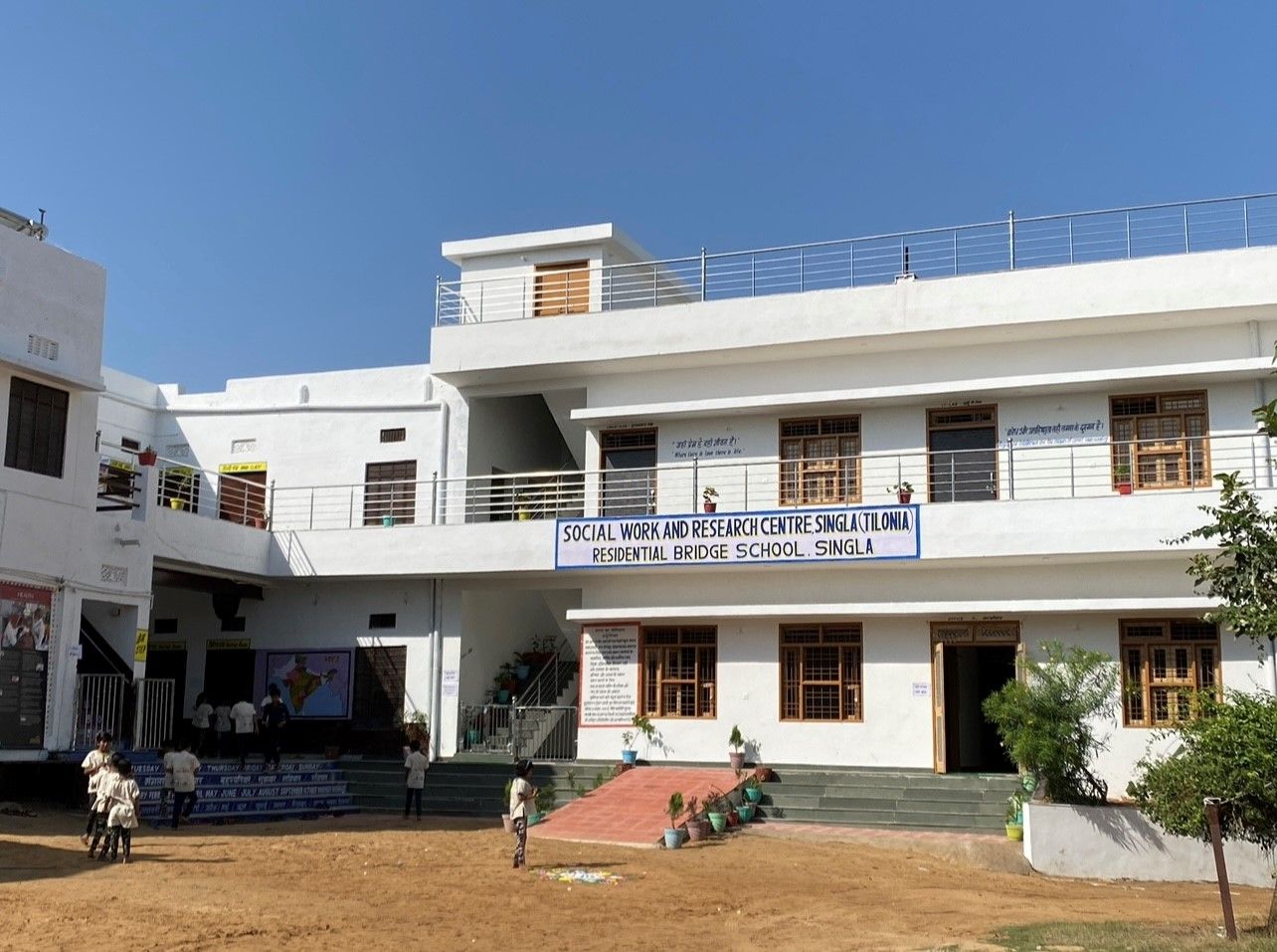There, Friends-for-Hope has set itself the task of giving needy children and young people access to education and training so that they can embark on a self-determined future. Thomas Thirolf, Co-founder and Honorary Board Member of Friends-for-Hope and Ex-Head of Group Controlling of the Munich Re Group, outlines the motivation that led to the founding of the organisation as follows: “From the very beginning, it was clear to us that we wanted to focus on the poorest of the poor, regardless of gender, ethnicity or religion.”
Helping people to help themselves
Today, a good ten years after the organisation was founded in 2014, Friends-for-Hope can look back on impressive results: More than 1,000 children and young people as well as their families, friends, village communities and many other people have been directly supported in the education and training projects implemented to date. Together with Barefoot College, which is a strong local partner of Friends-for-Hope in India, the organisation develops and implements sustainable projects that aim to find lasting, long-term solutions. The entire region benefits from this. This is because the village communities are always involved and their own initiative is encouraged. Friends-for-Hope thus consistently follows the principle of helping people to help themselves.
“Learning to read, write and do maths is completely new for many of the schoolchildren,” says Thomas Thirolf, describing the situation on the ground: “They are often the first generation in their families to receive an education. But to really make a lasting change, we must not lose sight of other aspects either.” Malnutrition is omnipresent in India. Hygiene workshops also provide urgently needed educational work.
Role models for future generations
At school, the children learn many things that will help them in everyday life and experience participation and co-determination in a children's parliament. Alongside school, they receive sewing courses or training to become carpenters or electricians. This training later secures them work in their villages. Thomas Thirolf: “This is an immensely important step in preventing the existing rural exodus to the big cities and thus a very likely life in slums.” They develop into self-confident people who carry their convictions into the communities, act as role models for future generations and gain prospects for a life beyond poverty, heteronomy and discrimination.
Thomas Thirolf states: “One year means a new life where we are involved. Around 90 per cent of the pupils in our bridge school projects manage to transfer to a secondary school after just one year. Without our work, they would have been denied this opportunity. The fact that more than 450 pupils have gained access to education through our organisation makes us proud. To put it in a nutshell: Education is life.” Girls and young women are a crucial key to change in this context. If they recognise the value of education, they will also send their own children to school. This is why Friends-for-Hope provides them with special support.
Close support for all projects
Friends-for-Hope personally supports all projects and regularly visits Rajasthan in order to identify their needs, recognise support requirements and develop long-term effective solutions directly on site and in close consultation with the village communities, coordinators, teachers, parents and children. In March, Dagmar von Tschurtschenthaler, Thomas Thirolf's colleague on the Executive Board, returned from a three-week trip to Rajasthan, during which the support of adolescent girls from the surrounding villages was once again one of the focal points. The fact that they have been able to use an IT room since the end of last year to prepare for their exams or catch up on their studies is an important new step. Dagmar von Tschurtschenthaler: “These families have no internet at home, and Barefoot College is well known and has a reputation as a safe place where the girls feel secure.”
For Thomas Thirolf, the close contact with the project managers on site is a guarantee for sustainable, successful work: “Thanks to an almost daily exchange with the project managers via digital media, the organisation is always close to current events and can act quickly, purposefully and emphatically.”




.dam.jpg)

